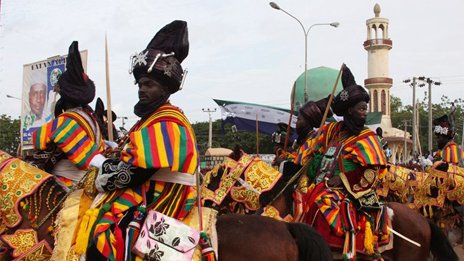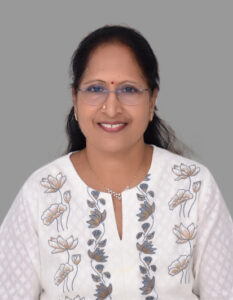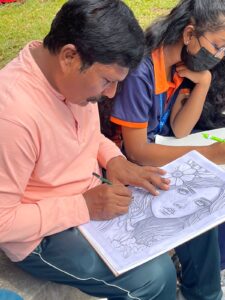NIGERIA: KANO CANCELS FAMOUS DURBAR HORSE FESTIVAL

Traditionally thousands of people attend the royal horse parade in Kano

A festival held during Muslim Eid celebrations has been cancelled in northern Nigeria, a region hit by a wave of militant Islamist attacks.
A BBC reporter says it is the first time in more than 200 years that the three-day durbar, or horse parading ceremony, in Kano has been called off.
Officials said it was being cancelled as the Emir of Kano was in poor health.
Last week, a devotional retreat that takes place towards the end of Ramadan was cancelled due to security concerns.
The ritual is referred to as “i’tikaf” when some people spend the last 10 days of Muslim fasting month in seclusion praying in mosques.
Analysts say another reason for the durbar’s cancellation may be continued concerns about security and the campaign of violence being waged by the Islamist group Boko Haram.
Galloping horsemen
In a statement, palace official Abbas Sanusi said the Emir, Alhaji Ado Bayero, could not go ahead with the durbar festival, known as Hawan Sallah, because of his “fragile” health.
The BBC’s Yusuf Yakasai in Kano city says it is not clear from what illness the emir is suffering.
The traditional ruler, who has been on the throne for 49 years, had been to the UK in July for medical treatment, our reporter says.
Thousands of people – mainly Muslims from the Hausa ethnic group – normally attend the durbar, a parade performed by galloping horsemen during Eid, which is due to take place at the weekend.
The emir is expected to ride a horse for three days, as the durbar honours the power and heritage of the Hausa community – one of the largest in Nigeria.
The cancellation has caused much disappointment in Kano, our reporter says.
While most people accept that the emir’s illness caused the cancellation, a few people suspect that security concerns also led to the decision, he says.
Kano residents say security at the durbar has increased in recent years.
Since 2009, Boko Haram has carried out a spate of bombings in northern Nigeria, targeting government buildings and religious sites.
The group, which wants to impose strict Muslim law across Nigeria, adheres to a strain of Islam that outlaws any kind of activity linked to Western culture.
It killed at least 160 people in attacks in Kano in January.




